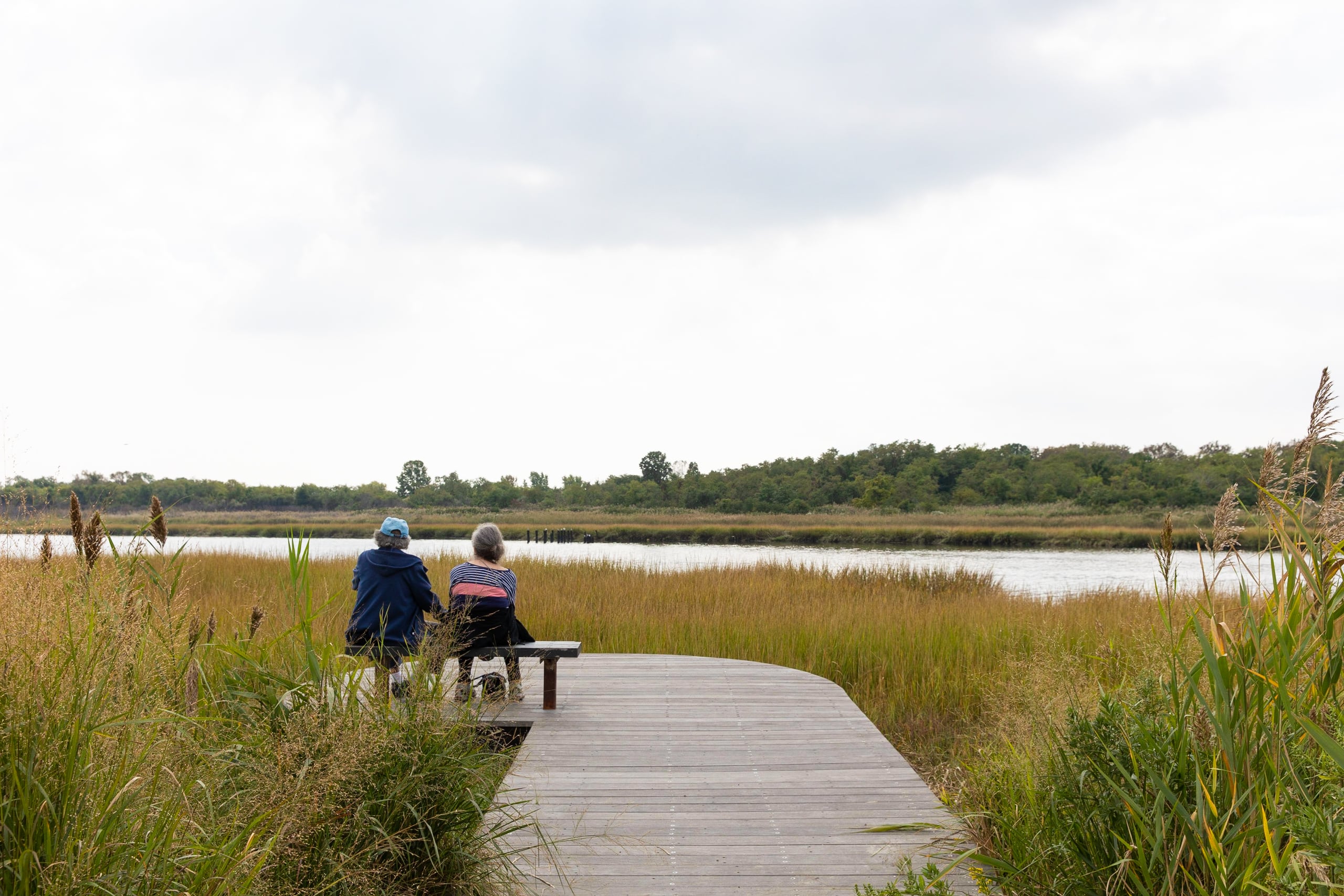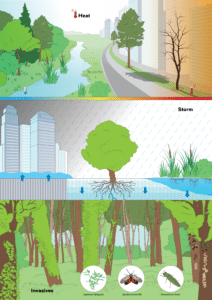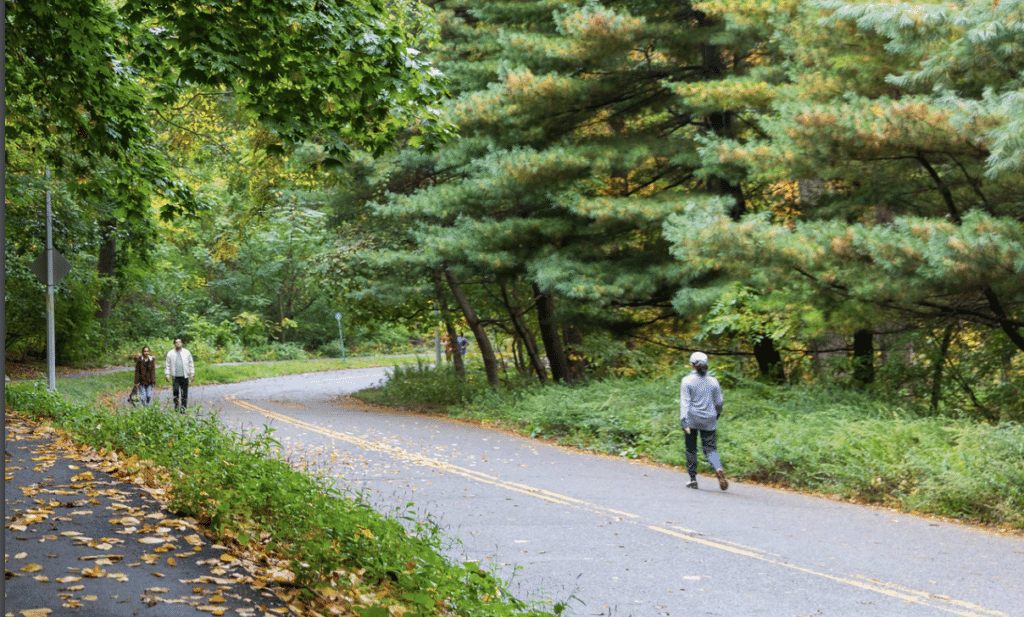The Impacts of Climate Change on New York City’s Natural Areas
By Natural Areas Conservancy on March 07, 2024

By Natural Areas Conservancy on March 07, 2024

By Jeffrey Clark, Senior Manager of Applied Climate Research
Amidst the escalating concerns of climate change, marked by extreme weather events and rising temperatures, the urgency to seek effective solutions has never been more critical. Our latest report, “Climate Change and Urban Nature: Opportunities, Solutions, and Risks,” written together with our partners at Central Park Conservancy and the Yale School of the Environment, explores how urban natural areas can both protect cities from the impacts of climate change as well as be negatively affected by these impacts. With urban populations swelling and the concrete jungle expanding, it’s time we shed light on the green oases in our cities that could hold the key to a more resilient future.

Built infrastructure increases heat and limits water absorption in contrast to natural areas. Natural areas, like forests, can lose some of their benefits if left unmanaged and overrun by invasive species.
Urban landscapes, with their dense infrastructure and sprawling concrete, are at the frontline of climate change impacts. High amounts of impervious surface increase local temperatures as well as limit the absorption of storm water, leading to increased extreme temperatures and flooding risks. However, nestled within these urban expanses are natural areas that offer a plethora of benefits. These green spaces are not just aesthetic enhancements but are vital in three main ways:
Despite their numerous benefits, urban natural areas are often neglected in city planning and budget allocations, leaving them vulnerable to the adverse effects of climate change.
Our report emphasizes the urgent need for more research and data to understand and harness the full potential of urban natural areas in climate adaptation and mitigation. For instance, New York City’s natural areas, which cover over 12% of the city’s land, play a crucial role in cooling the city, absorbing stormwater, and providing recreational spaces for residents. Yet, it is unclear to what extent our natural areas provide each of these services. Further, these natural areas are unevenly distributed, highlighting the need for equitable access to green spaces.
The intersection of climate change and social justice is profound. Marginalized communities often bear the brunt of environmental injustices, facing higher exposure to pollution and climate-related hazards. Enhancing urban natural areas offers a pathway to address these disparities by providing nature-based benefits and improving community health and well-being.
The role of urban natural areas in the face of climate change is both a challenge and an opportunity. As we navigate the complexities of urbanization and environmental degradation, prioritizing the conservation and restoration of these spaces is imperative.
We invite readers to delve into our report for a deeper understanding and join us in advocating for the protection and enhancement of urban natural areas. Together, we can work towards creating more resilient, equitable, and sustainable urban landscapes.
Access the full Climate Change and Urban Nature report.

Check out our blog post on our Cooling Cities report, for an overview of how we leveraged our Forests in Cities network to measure the cooling potential of urban forests
Read the blog post